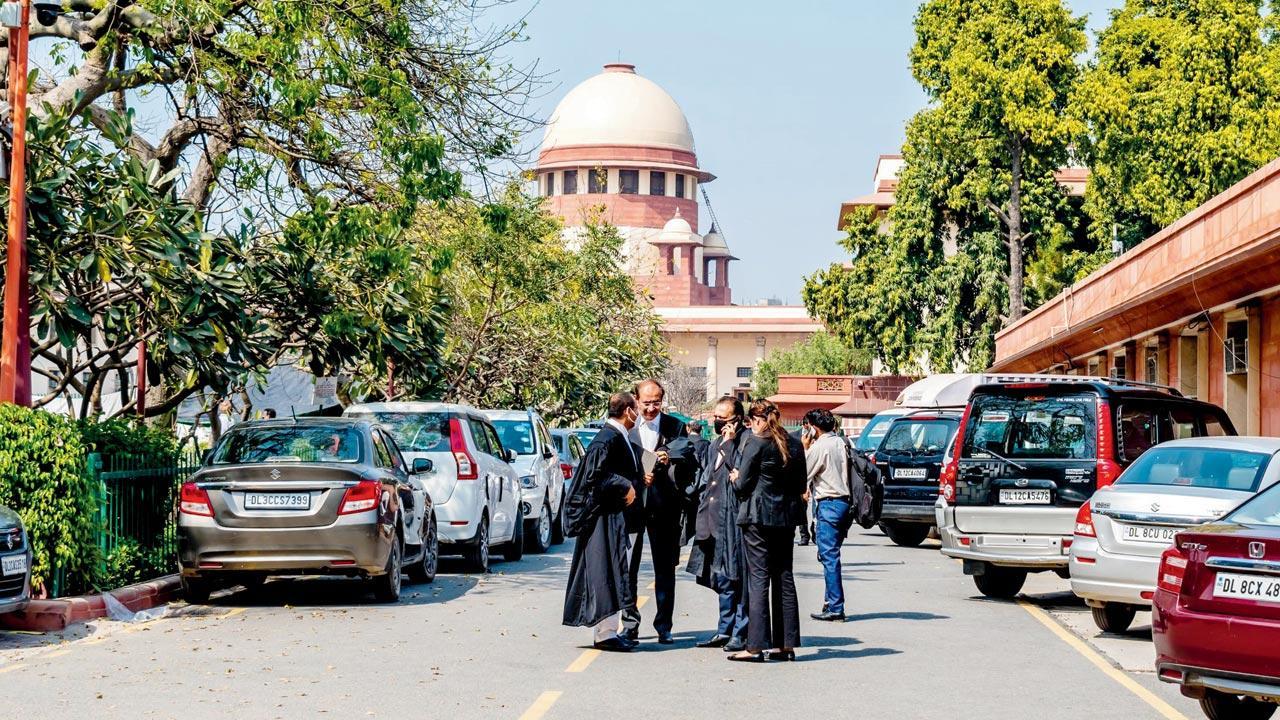Legal professionals welcome passing of Bill in Lok Sabha, which seeks to weed out touts and consolidate regulation

Legal experts say relevant laws are coming in. Representational pic
The Advocates (Amendment) Bill, 2023, passed on the first day of the Winter Session in Lok Sabha on Monday, December 4, proposes to repeal the Legal Practitioners Act of 1879. Practising solicitors and advocates in the city welcomed the move saying that the Bill ensures a strict code of conduct/ethics to regulate the profession.
Repealing of the Legal Practitioners Act, 1879 was recommended by the Law Commission of India in its Report No. 249 titled ‘Obsolete Laws: Warranting Immediate Repeal (Second Interim Report)’. The government incorporated the provisions of Section 36 of the Legal Practitioners Act, 1879 into the Advocates Act, 1961, thus bringing the regulation of the profession under one act.
Issue of touts
Mohini Priya, advocate on record, Supreme Court, said, “The Advocates (Amendment) Bill was introduced in the Rajya Sabha on August 1 and passed on August 3. It seeks to weed out touts who exploit vulnerable people seeking justice.”
“The proposed amendment empowers courts to disclose the identities of touts and impose penal actions, which is a commendable stride towards transparency and accountability. This will disrupt touts’ secret operations and will serve as a deterrent,” said Advocate Mohini.
“Courts, armed with the authority to issue punishments, will instil a sense of accountability in touts. The amendment acts as a catalyst for a more transparent, accountable, and trustworthy legal ecosystem, redefining the dynamics of legal representation and reinforcing the sanctity of the profession,” said Advocate Mohini.
Highlights of the Bill
Stuti Galiya, a practising solicitor, said, “The Bill introduces measures to combat touts, defining them as individuals engaged in activities like procuring legal practitioners for payment or frequenting specific locations to secure legal business. The Bill empowers high courts, district judges, sessions judges, district magistrates, and revenue officers to create and publish lists of touts. Authorities with the power to compile these lists can direct subordinate courts to investigate individuals suspected to be touting. Touting not only misleads clients but also erodes trust in the legal system. Individuals who rely on these services may unknowingly end up with unqualified or unscrupulous practitioners, risking their legal rights and interests.”
“Preserving the integrity and credibility of the legal system is vital to ensure that justice is accessible to all. These changes are welcome. By implementing robust regulations, raising public awareness, promoting ethical conduct, and fostering collaboration with technology providers, the legal profession can be safeguarded and thereby rights and interests of those seeking legal services could be protected,” Galiya said.
‘Protecting litigants’
“It is heartening to note that old, colonial laws are being amended, repealed and replaced with modern, relevant laws. The Advocates Act and the Legal Practitioners Act are classic examples of such laws,” said Advocate Floyd Gracias, constitutional expert and Supreme Court counsel.
“The Bill, in terms of Section 45A as amended, seeks to create a list of touts practising in each court. This will ensure that litigants are not taken for a ride. It in keeping with the ethics of the profession, which requires advocates to desist from solicitation of clients. But, the up to R500 fine seems too low to be a deterrent,” Advocate Gracias said.
Advocate Gracias added, “While one can argue that the Constitution guarantees freedom of trade and profession under Article 19, the same Article, in terms of reasonable restrictions, inter alia, allows for regulations and licensing of trades and professions.”
“This Bill is the first step in Judicial reform. Touts or middlemen wreak havoc in litigants’ lives, exploiting them financially and emotionally. This Bill, if effectively implemented, will break the nexus and restore confidence in the legal system and judiciary. Touts try to influence and manage the system in the wrong way, while tossing the merit of matter, thereby derailing the entire judicial process,” said Advocate Dhanpal Jain, who specialises in civil and Constitutional law.
Who is a tout?
Advocate Mikhail Dey, who practises criminal law, said, “The Advocates Act, 1961, consolidated existing laws on the legal profession and established the Bar Council of India and State Bar Councils. The Act abolished the difference between a vakil and an advocate. The Act grants attorneys the right to practise in any area of the country, in any high court, as well as at the SC.”
Advocate Mikhail said that as per the Bill, “The court or judge may exclude from the premises of the Court anyone whose name is included in the list of touts... a person who proposes to procure or procures the employment of a legal practitioner in a legal business in return of payment, or frequents places such as the precincts of civil or criminal courts, revenue-offices, or railway stations to procure such employment.
 Subscribe today by clicking the link and stay updated with the latest news!" Click here!
Subscribe today by clicking the link and stay updated with the latest news!" Click here!








